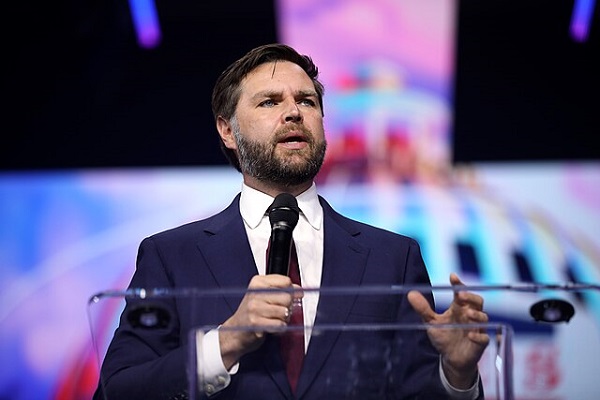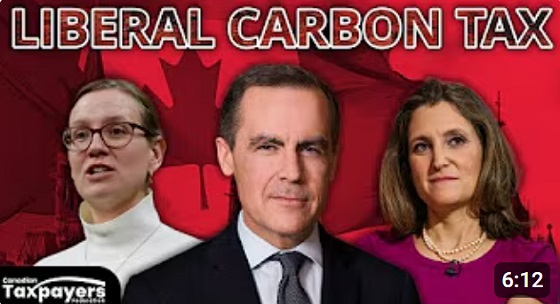Business
Vance, Elon criticize judge for blocking DOGE from Treasury Department

“J.D Vance” by Gage Skidmore, licensed by CC BY-SA 2.0.
 MxM News
MxM News
Quick Hit:
Vice President JD Vance and Elon Musk criticized a federal judge’s decision to block DOGE officials from accessing the Treasury Department’s payment system, calling it an overreach of judicial power. The ruling temporarily halts political appointees’ access to financial data, intensifying tensions between the White House and the judiciary.
Key Details:
- U.S. District Judge Paul Engelmayer issued an order barring DOGE officials without security clearances from accessing Treasury payment systems through at least next Friday.
- Vance called the ruling “illegal,” arguing that judges cannot interfere with executive power, while Musk called for Engelmayer’s impeachment.
- The lawsuit, filed by 19 Democratic state attorneys general, is one of many legal challenges to the Trump administration’s government overhaul efforts.
Diving Deeper:
Vice President JD Vance and billionaire Elon Musk are pushing back against a federal judge’s decision to block the Department of Governmental Efficiency (DOGE) from accessing the Treasury Department’s payment system, calling the ruling a violation of executive authority.
The temporary injunction, issued by U.S. District Judge Paul Engelmayer, an Obama appointee, restricts DOGE officials—including political appointees and special government employees—from accessing the Treasury’s payment infrastructure unless they have proper background checks and security clearances. The judge cited concerns that the administration had overstepped legal boundaries in granting access to sensitive financial data.
Vance, in a social media post Sunday, accused the judge of unlawfully interfering in executive matters. “Judges aren’t allowed to control the executive’s legitimate power,” he said. Musk followed with more pointed remarks, calling for Engelmayer’s impeachment and arguing that the ruling was politically motivated.
The lawsuit, brought by 19 Democratic state attorneys general, is part of a broader legal effort to block President Trump’s aggressive attempts to cut federal spending and restructure government operations. So far, multiple courts have placed temporary holds on various White House initiatives, including a buyout program for federal employees and a workforce reduction at USAID.
Critics of Vance and Musk’s response argue that the administration should follow legal protocols rather than attacking the judiciary. Former Transportation Secretary Pete Buttigieg dismissed their criticisms, saying, “In America, decisions about what is legal and illegal are made by courts of law. Not by the Vice President.” Former Rep. Liz Cheney also weighed in, stating that the administration’s recourse is through the appeals process, not by undermining the courts.
Musk has defended DOGE’s role at the Treasury Department, stating that the changes his team proposed were necessary to improve financial oversight and ensure accurate reporting of government spending. He claimed that Treasury and DOGE “jointly agreed” on new reporting requirements and emphasized that longtime career government employees were implementing them.
The legal battle is still in its early stages, with a hearing scheduled for Friday to determine whether the judge’s temporary order should be extended. Meanwhile, Trump signaled that DOGE would soon shift focus to the Education Department and military spending, setting the stage for further clashes with the judiciary.
2025 Federal Election
MEI-Ipsos poll: 56 per cent of Canadians support increasing access to non-governmental healthcare providers

-
Most believe private providers can deliver services faster than government-run hospitals
-
77 per cent of Canadians say their provincial healthcare system is too bureaucratic
Canadians are increasingly in favour of breaking the government monopoly over health care by opening the door to independent providers and cross-border treatments, an MEI-Ipsos poll has revealed.
“Canadians from coast to coast are signalling they want to see more involvement from independent health providers in our health system,” explains Emmanuelle B. Faubert, economist at the MEI. “They understand that universal access doesn’t mean government-run, and that consistent failures to deliver timely care in government hospitals are a feature of the current system.”
Support for independent health care is on the rise, with 56 per cent of respondents in favour of allowing patients to access services provided by independent health entrepreneurs. Only 25 per cent oppose this.
In Quebec, support is especially strong, with 68 per cent endorsing this change.
Favourable views of accessing care through a mixed system are widespread, with three quarters of respondents stating that private entrepreneurs can deliver healthcare services faster than hospitals managed by the government. This is up four percentage points from last year.
Countries like Sweden and France combine universal coverage with independent providers and deliver faster, more accessible care. When informed about how these health systems run, nearly two in three Canadians favour adopting such models.
The poll also finds that 73 per cent of Canadians support allowing patients to receive treatment abroad with provincial coverage, which could help reduce long wait times at home.
Common in the European Union, this “cross-border directive” enabled 450,000 patients to access elective surgeries in 2022, with costs reimbursed as if they had been treated in their home country.
There’s a growing consensus that provincial healthcare systems are overly bureaucratic, with the strongest agreement in Alberta, B.C., and Quebec. The proportion of Canadians holding this view has risen by 16 percentage points since 2020.
Nor do Canadians see more spending as being a solution: over half say the current pace of healthcare spending in their province is unsustainable.
“Governments shouldn’t keep doubling down on what isn’t working. Instead, they should look at what works abroad,” says Ms. Faubert. “Canadians have made it clear they want to shift gears; now it’s up to policymakers to show they’re listening.”
A sample of 1,164 Canadians aged 18 and older was polled between March 24th and March 28th, 2025. The margin of error is ±3.3 percentage points, 19 times out of 20.
The results of the MEI-Ipsos poll are available here.
* * *
The MEI is an independent public policy think tank with offices in Montreal, Ottawa, and Calgary. Through its publications, media appearances, and advisory services to policymakers, the MEI stimulates public policy debate and reforms based on sound economics and entrepreneurship.
2025 Federal Election
POLL: Canadians say industrial carbon tax makes life more expensive

The Canadian Taxpayers Federation released Leger polling showing 70 per cent of Canadians believe businesses pass on most or some of the cost of the industrial carbon tax to consumers. Meanwhile, just nine per cent believe businesses pay most of the cost.
“The poll shows Canadians understand that a carbon tax on business is a carbon tax on Canadians that makes life more expensive,” said Franco Terrazzano, CTF Federal Director. “Only nine per cent of Canadians believe Liberal Leader Mark Carney’s claim that businesses will pay most of the cost of his carbon tax.
“Canadians have a simple question for Carney: How much will your carbon tax cost?”
The federal government currently imposes an industrial carbon tax on oil and gas, steel and fertilizer businesses, among others.
Carney said he would “improve and tighten” the industrial carbon tax and extend the “framework to 2035.” Carney also said that by “changing the carbon tax … We are making the large companies pay for everybody.”
The Leger poll asked Canadians who they think ultimately pays the industrial carbon tax. Results of the poll show:
- 44 per cent say most of the cost is passed on to consumers
- 26 per cent say some of the cost is passed on to consumers
- 9 per cent say businesses pay most of the cost
- 21 per cent don’t know
Among those decided on the issue, 89 per cent of Canadians say businesses pass on most or some of the cost to consumers.
“Carbon taxes on refineries make gas more expensive, carbon taxes on utilities make home heating more expensive and carbon taxes on fertilizer plants increase costs for farmers and that makes groceries more expensive,” Terrazzano said. “A carbon tax on business will push our entrepreneurs to cut production in Canada and increase production south of the border and that means higher prices and fewer jobs for Canadians.”
-

 Alberta2 days ago
Alberta2 days agoMade in Alberta! Province makes it easier to support local products with Buy Local program
-

 2025 Federal Election2 days ago
2025 Federal Election2 days agoCSIS Warned Beijing Would Brand Conservatives as Trumpian. Now Carney’s Campaign Is Doing It.
-

 2025 Federal Election2 days ago
2025 Federal Election2 days agoInside Buttongate: How the Liberal Swamp Tried to Smear the Conservative Movement — and Got Exposed
-

 Bruce Dowbiggin1 day ago
Bruce Dowbiggin1 day agoIs HNIC Ready For The Winnipeg Jets To Be Canada’s Heroes?
-

 Dr. Robert Malone2 days ago
Dr. Robert Malone2 days agoThe West Texas Measles Outbreak as a Societal and Political Mirror
-

 COVID-191 day ago
COVID-191 day agoCOVID virus, vaccines are driving explosion in cancer, billionaire scientist tells Tucker Carlson
-

 Health1 day ago
Health1 day agoHorrific and Deadly Effects of Antidepressants
-

 illegal immigration1 day ago
illegal immigration1 day agoDespite court rulings, the Trump Administration shows no interest in helping Abrego Garcia return to the U.S.







